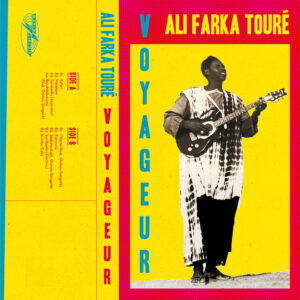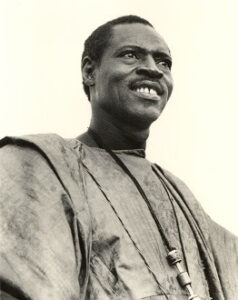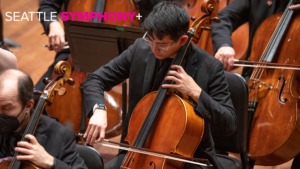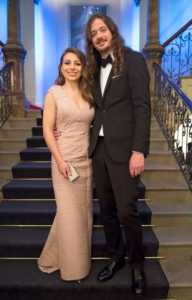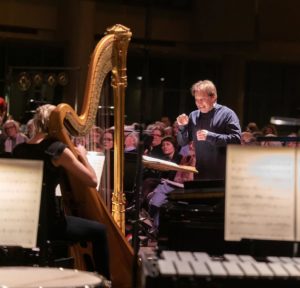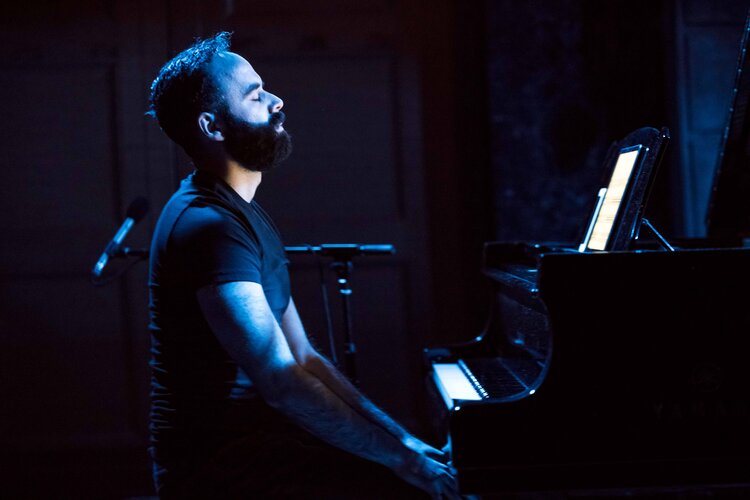
When the pianist Adam Tendler received a windfall of cash a few years ago, he chose not to blow it on such ephemeral items as rent and groceries. Instead, he commissioned 16 composers to write short works, and assembled those into a program called Inheritances which he performed at The 92
nd Street Y, New York on Saturday in the collection’s New York premiere. Inheritances is deeply personal for Tendler: the money was an unanticipated bequest from his father, whose death itself was unexpected.
Nearly all of the music was tender and gentle; an impression that was formed from both the interpretation and the compositions themselves. Though it could have been monotonous from so much music in a similar mood and pace, the evening unfolded as a through-composed work with a discernable emotional arc.
An intense peak at the center of the program was inti figgis-vizueta’s hushing, which was coordinated with home video clips from Tendler’s childhood. It was stark, energetic and physical, with Tendler rising to his feet several times to fiercely pound the keys, alternating with poignant moments in which the Tendler on stage gazed up at the child Adam on the screen.
Inheritances began with an audio montage by Laurie Anderson called Remember, I Created You; after which Tendler, clad in a tight short-sleeved dress shirt that strained to contain his impressively bulging biceps, launched into Missy Mazzoli’s Forgiveness Machine. Mazzoli’s music was beautiful, tonal and lyrical, like many of the works that followed. Prepared piano in Scott Wollschleger’s Outsider Song added a variety of timbre to the lovely lullaby. Angelica Negron’s You Were My Age was whimsical in its staccato melody. What It Becomes by Mary Prescott was eerie and somewhat dissonant, yet still tender. Sarah Kirkland Snider’s rich chorale, the plum tree I planted still there, led into False Memories, a jazz-inflected dreamy piece by Marcos Balter. Pamela Z’s Thank You So Much changed up the texture by including a pastiche of voices mixed on a laptop, with the pattern and rhythm of the speech echoed in the keyboard music.
We don’t need to tend this garden. They’re wildflowers by Darian Donovan Thomas was a new-age style piece over which Tendler intoned an extended monologue of memory fragments. The final selection, Morning Piece by Devonte Hynes, evoked both metal and Bach, and Tendler ended Inheritances with a long slow decrescendo to Hynes’s music.
Ten of the 16 composers were in the audience: Timo Andres, Marcos Balter, inti figgis-vizueta, John Glover, Missy Mazzoli, Mary Prescott, Sarah Kirkland Snider, Darian Donovan Thomas, Scott Wollschleger and Pamela Z (Laurie Anderson, Angelica Negron, Ted Hearne, Christopher Cerrone, Nico Muhly and Devonte Hynes were not able to attend). As the applause began at the conclusion of the performance, Tendler motioned for the composers to stand. I spotted Pamela Z and Missy Mazzoli in the brief moment before the entire audience was on its feet in a standing ovation, a tribute to Tendler, his late father and the music.
